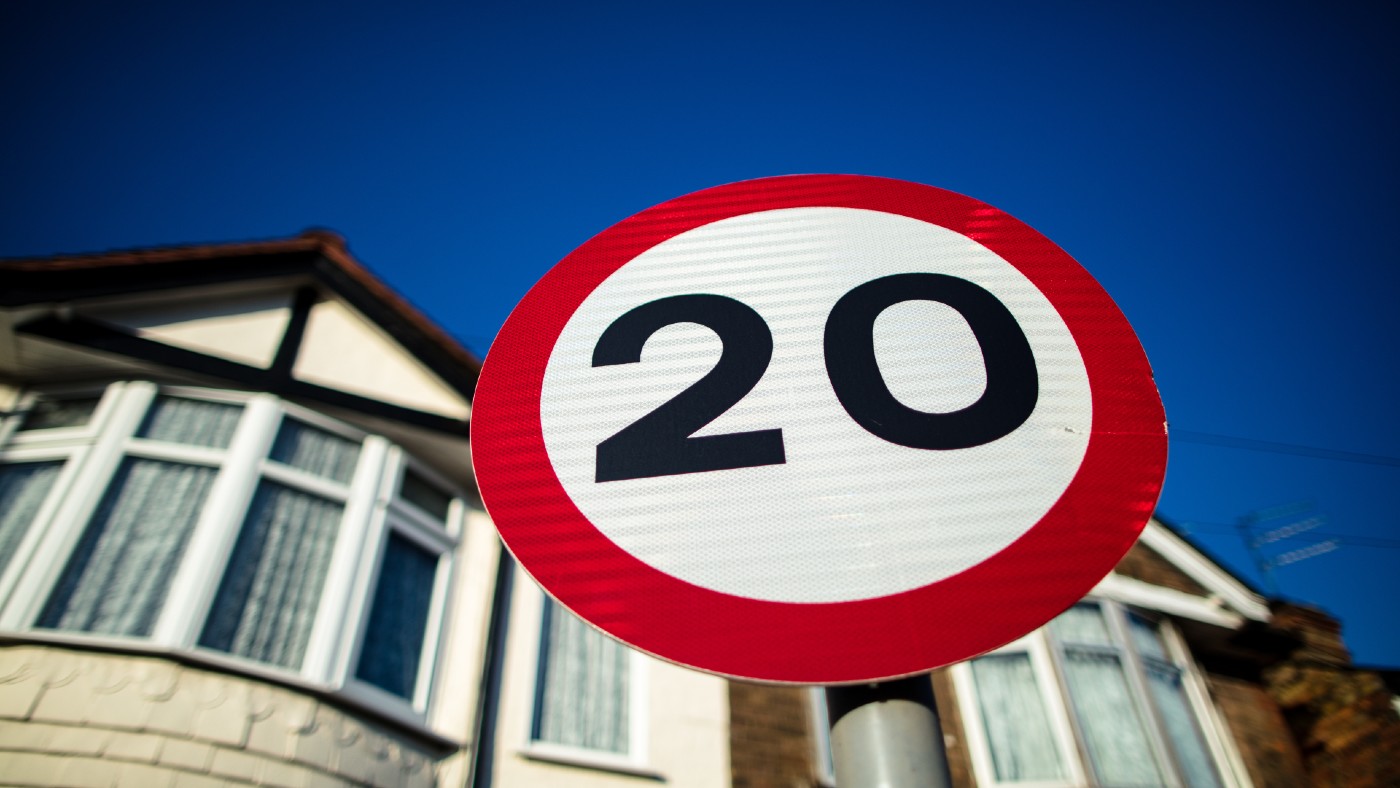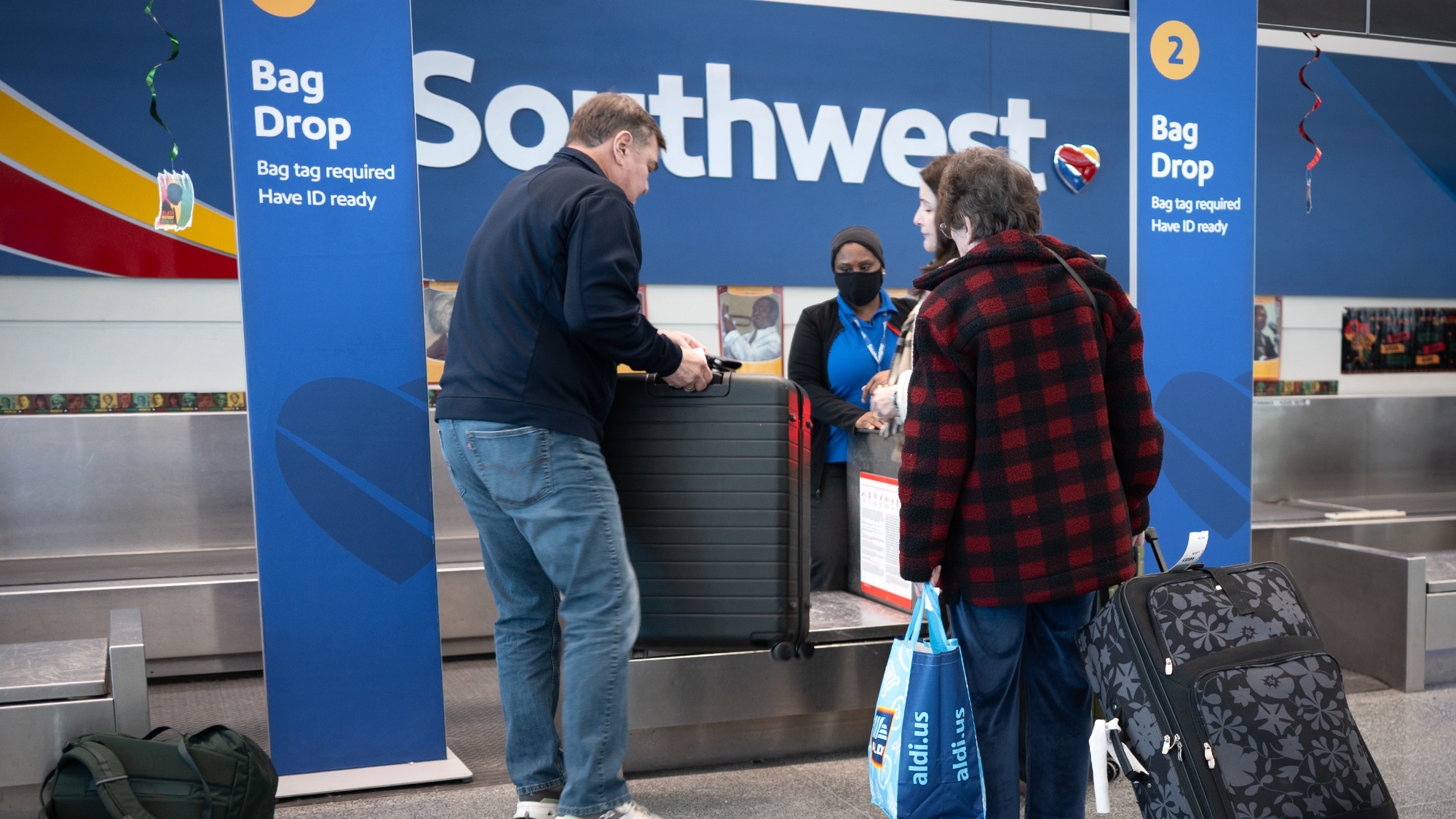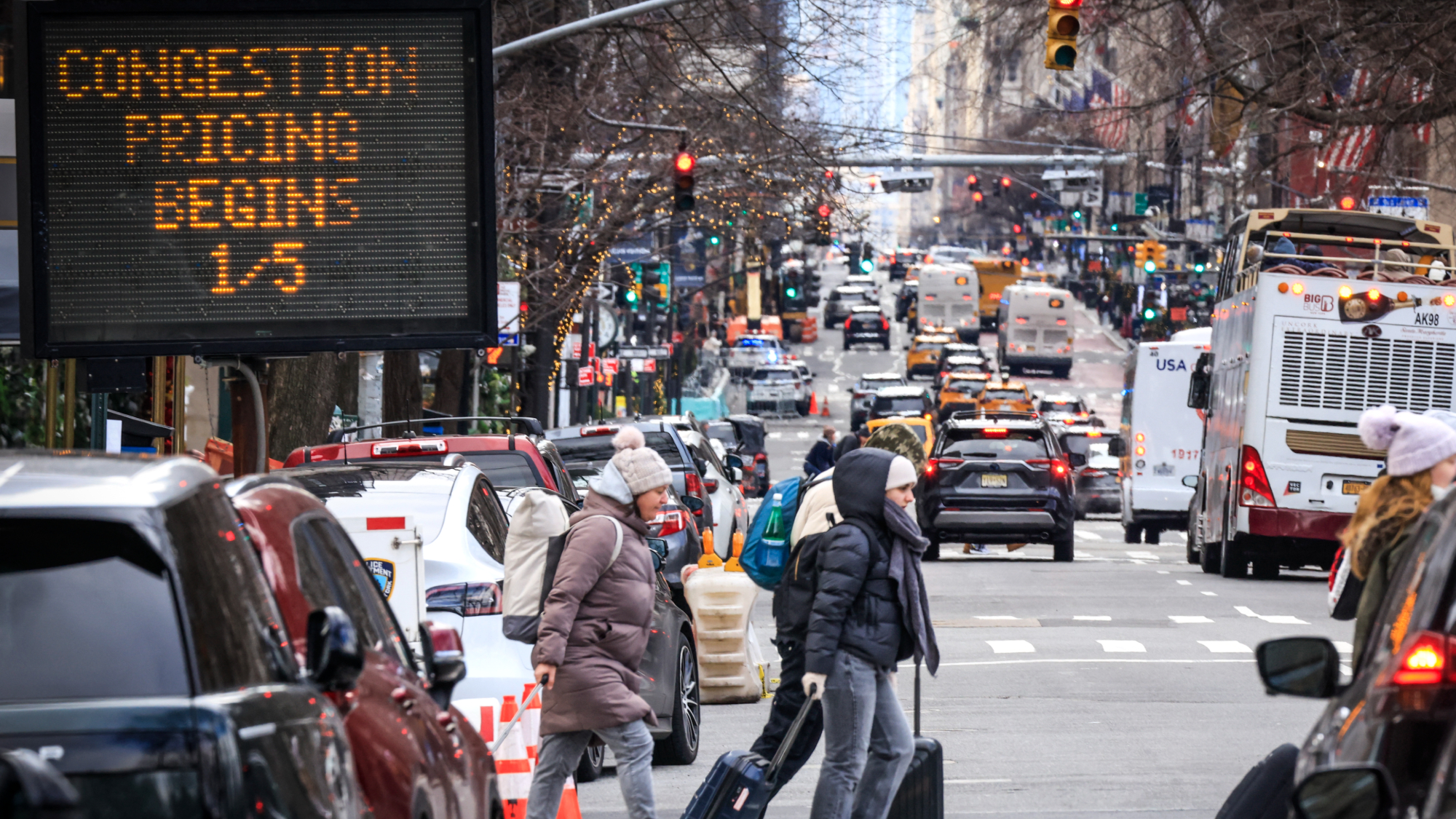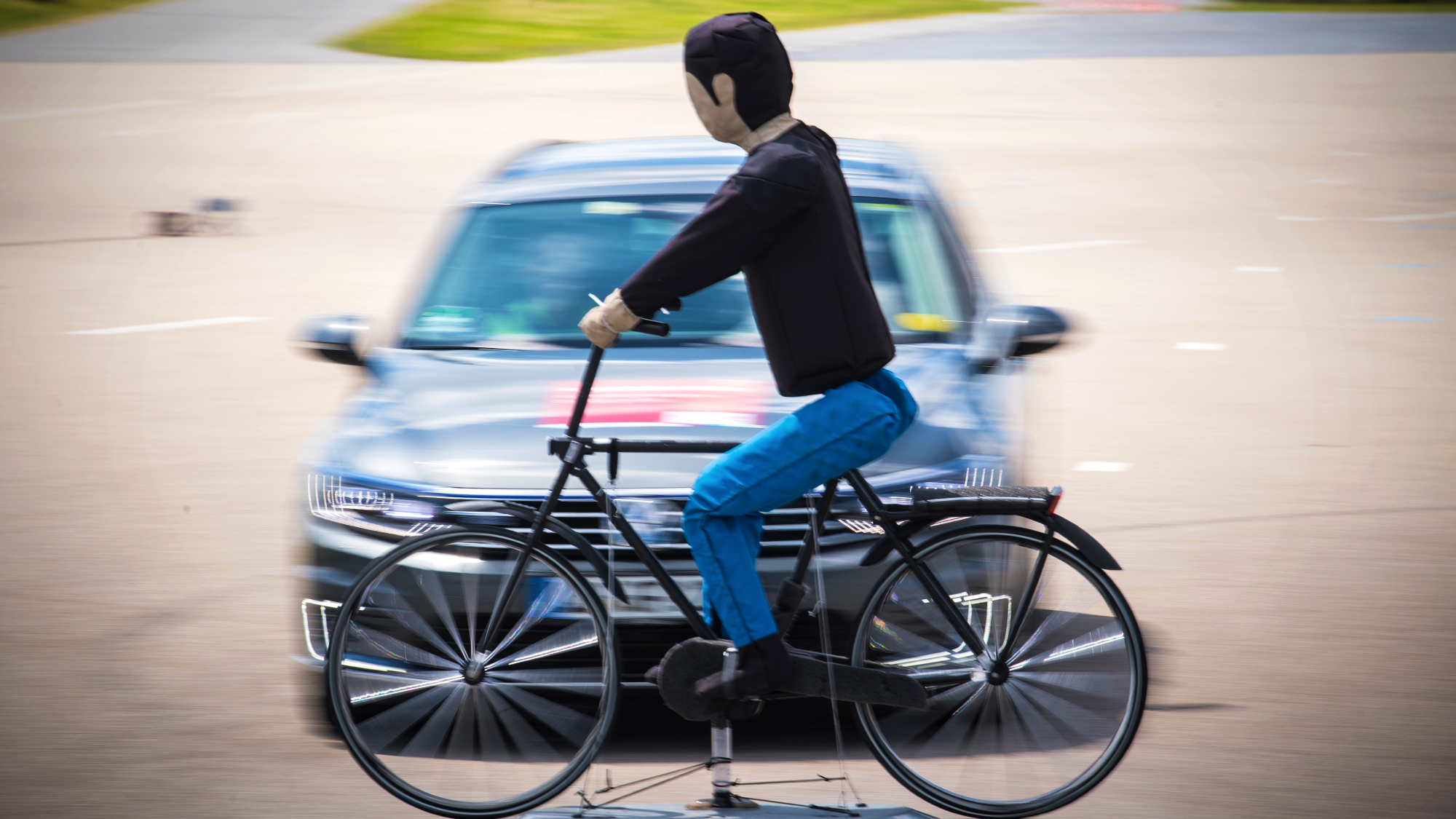The pros and cons of Wales’s 20mph speed limit
Wales will become the first UK nation to impose 20mph restrictions on residential roads

A free daily email with the biggest news stories of the day – and the best features from TheWeek.com
You are now subscribed
Your newsletter sign-up was successful
The speed limit will be lowered to 20mph in built-up areas in Wales in a bid to reduce traffic accidents and encourage residents to cycle or use public transport.
Under proposals from the Labour-led Welsh government, new slower speed limits are “currently being trialled in eight communities across Wales”, and are now set to be “rolled out nationally” in September 2023 after new legislation was passed in the Welsh parliament this week, said The Guardian.
The new, lower 20mph speed limit, a UK first, will not be imposed as a blanket speed limit on all roads but will instead be set as the default limit, “leaving local authorities to engage with communities to decide which roads should remain at 30mph”, added the paper.
The Week
Escape your echo chamber. Get the facts behind the news, plus analysis from multiple perspectives.

Sign up for The Week's Free Newsletters
From our morning news briefing to a weekly Good News Newsletter, get the best of The Week delivered directly to your inbox.
From our morning news briefing to a weekly Good News Newsletter, get the best of The Week delivered directly to your inbox.
1. Pro: reduces risk of collisions
The Labour-led government in Wales made the move to reduce the speed limit in response to research that showed the majority of people hurt in collisions in Wales were on 30mph roads, with over 40% of these incidents leading to someone being seriously injured or killed.
Campaigners for lower speed limits “argue the chances of someone surviving being hit by a car at 20mph rather than 30mph is seven times higher while stopping distances are almost halved”, said the BBC.
“We know that 20mph zones reduce the speed of traffic, reduce accidents – particularly accidents to children,” Wales’s First Minister Mark Drakeford said. “We want to see that become the default position right across Wales.”
2. Con: adds to journey times
The lower speed limit has already proven to be divisive in areas where trials have taken place. Some motorists have complained of “more congestion and journeys taking longer”, said the BBC.
A free daily email with the biggest news stories of the day – and the best features from TheWeek.com
One resident near to where the new speed limit was being trialled told BBC Radio Wales that the 20mph limit was causing “chaos”.
“Buckley is on a hill so every road coming in has an incline,” said Adie Drury who has started a petition against the introduction of the new speed limit. “Trying to do 20mph on a really steep hill is causing chaos. It’s causing more emissions.”
3. Pro: saves money
The Welsh government has said the improved road safety as a result of a reduction in average speeds on roads could save the government millions.
It has calculated that it could save £58m within 30 years, said the BBC, as a result of reduced emergency service demand and hospital treatment.
4. Con: poor compliance
RAC research suggests that compliance with 20mph limits is “poor”, with many road users viewing slower speed limits as “inappropriate”.
Speaking to The Daily Telegraph, RAC road safety spokesperson Simon Williams said: “Rather than setting a default 20mph limit on all restricted roads it would be better to target areas where they are most needed – for example on residential roads or in areas where there is high footfall – as opposed to main ‘arterial’ roads where there are few pedestrians.”
5. Pro: better for the community
Lee Waters, the Welsh deputy minister for climate change, told the BBC that while it may take time to “win hearts and minds” over the change, the new legislation will bring improvements in the quality of life for the whole community.
“The evidence is clear, decreasing speeds not only reduces accidents and saves lives, but helps improve people’s quality of life – making our streets and communities a safer and more welcoming place for cyclists and pedestrians, whilst helping reduce our environmental impact,” he told the broadcaster.
6. Con: money could be better spent
Opposition politicians in the Welsh Conservatives have criticised the Welsh government for spending £32m on the scheme while much of the country is struggling with the cost of living.
“The Welsh Conservatives are not against introducing 20mph speed limits outside schools, playgrounds, places of worship and high streets, but a blanket roll-out is quite frankly ludicrous,” said shadow transport minister Natasha Asghar.
“With a price tag of more than £32 million, is this really money well spent at a time when the Labour Government should be focused on tackling the big issues at hand such as the cost-of-living? I don't think it is, and I am sure residents across the country will be thinking the exact same.”
And while the Welsh government may hope that a lower speed limit will encourage a change in behaviour and prompt people to cycle more or use public transport, there is little infrastructure in place to support such a change.
“We’ve no cycle lanes, have narrow lanes and public transport is poor. We don’t all live in Cardiff and have Cardiff’s infrastructure, public transport and industry on our doorstep,” one member of the public told the BBC.
-
 How the FCC’s ‘equal time’ rule works
How the FCC’s ‘equal time’ rule worksIn the Spotlight The law is at the heart of the Colbert-CBS conflict
-
 What is the endgame in the DHS shutdown?
What is the endgame in the DHS shutdown?Today’s Big Question Democrats want to rein in ICE’s immigration crackdown
-
 ‘Poor time management isn’t just an inconvenience’
‘Poor time management isn’t just an inconvenience’Instant Opinion Opinion, comment and editorials of the day
-
 Are car headlights too bright?
Are car headlights too bright?The Explainer 82% of UK drivers concerned about being ‘dazzled’ as LED bulbs become more common
-
 Is New York City mayoral candidate Zohran Mamdani’s plan for free buses realistic?
Is New York City mayoral candidate Zohran Mamdani’s plan for free buses realistic?Talking Points A transit innovation or a costly mistake
-
 Toxic fumes on airplanes might be making you sick
Toxic fumes on airplanes might be making you sickUnder the Radar Aircraft manufacturers have allegedly downplayed the risks
-
 Southwest joins rival airlines on paid baggage
Southwest joins rival airlines on paid baggageSpeed Read The company is ending its longtime free-luggage policy
-
 US jet fuel tanker, cargo ship collide off UK coast
US jet fuel tanker, cargo ship collide off UK coastSpeed Read A cargo vessel carrying a toxic chemical collides with a US-military chartered oil tanker in the North Sea
-
 New York rolls out vehicle toll in Manhattan
New York rolls out vehicle toll in ManhattanSpeed Read In an effort to reduce traffic gridlock, vehicles will automatically be charged a toll to drive below 60th Street
-
 Senate passes FAA bill with new consumer protections
Senate passes FAA bill with new consumer protectionsSpeed Read The legislation will require airlines to refund customers for flight delays
-
 US to require automatic braking on new cars
US to require automatic braking on new carsSpeed Read 'We're living through a crisis in roadway deaths'